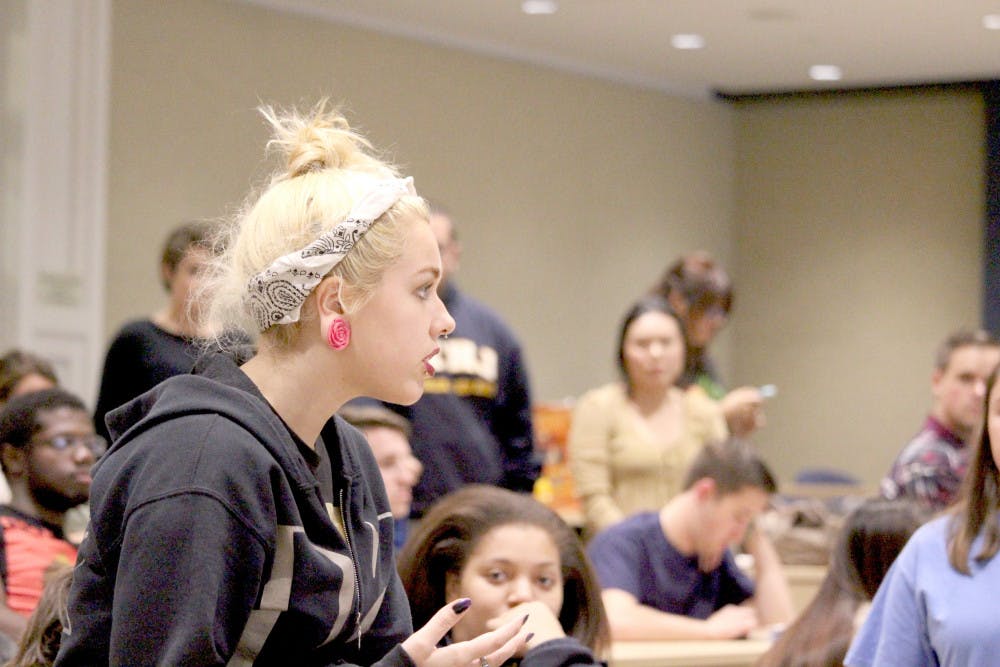By Sean Reis
Staff Writer

A college campus can be one of the most stressful environments in the world. That’s where programs such as the College’s Counseling and Psychological Services (CAPS) come in. CAPS is devoted to helping students feel happier, although sometimes it is hard to actually define what being “happy” is — and students may struggle to find it during their time on campus.
October is Mental Health Awareness Month and throughout the month, CAPS hosted multiple events on campus to bring awareness about the importance of mental health to students at the College, including “The Happy Secret to Better Work” event on Tuesday, Oct. 20, in the Education Building.
“The Happy Secret to Better Work” was a TEDx Talk from Indiana University-Bloomington in 2011, where American author and speaker Shawn Achor discussed his area of advocacy — positive psychology. Students in attendance of CAPS’ event not only watched the short talk, but also broke out into group discussions based on Achor’s studies and their own opinions. They found that society’s definition of happiness seemed to be scientifically broken and backward.
“Success is setting a goal, striving to reach that goal and reaching that goal,” said Jennifer Pezzuti, a sophomore open options humanities and social sciences major. “Happiness is a feeling of joy. Success leads to happiness, even though it should be happiness leads to success.”
It seemed as though this backward mindset was especially evident on college campuses, specifically when discussing grades.
“I always have this feeling, even if I get that ‘A’ on that exam,” senior chemistry major Amit Gupta said in regards to society’s backward perception of happiness. “Moving forward, you are not going to feel as content with yourself until you get A’s on every exam.”
In his 2011 talk, however, Achor said “this feeling” — as Gupta described — does not have to be your reality because “It is not necessarily the reality that shapes us, but it is the lense that shapes your reality,” Achor said.
Achor also discussed how happiness is merely 10 percent of your external world, while the other 90 percent is how you process the world internally. With dedication, Achor said it is possible to change your reality’s lense, thus changing the 90 percent of how you process your reality. This can be done with a few simple tasks in 21 days: listing three gratitudes, journaling, exercising, meditating and performing random acts of kindness.
Although some of these tasks, for example meditation, may seem intimidating to many, Achor’s studies have shown significant changes in the lives of many who have been determined to be consistent with the tasks throughout the 21 days.

“Honestly, if I could spend 21 days of my life to be happy, I would. Who wouldn’t?” sophomore criminology major Bobby Pallein said.
Unfortunately, society has wired the brains of its citizens backward, which was summarized perfectly by Karen Chan, a senior psychology and women’s gender studies double major, and CAPS peer educator.
“In our society, our goals are always changing because, as a society, we’ve been taught to be ‘the best’ when instead we should focus on being ‘the best me,’” Chan said. “As a result, I feel our happiness is not as high as it could be with our need to be ‘the best.’ Do not take success for granted and focus on you more, focus on the positives not the negatives.”
Overall, “The Happy Secret to Better Work” was a success, with students from all grades opening up to friends and strangers alike and taking a step forward toward being happier, whatever the definition of happy might be.







